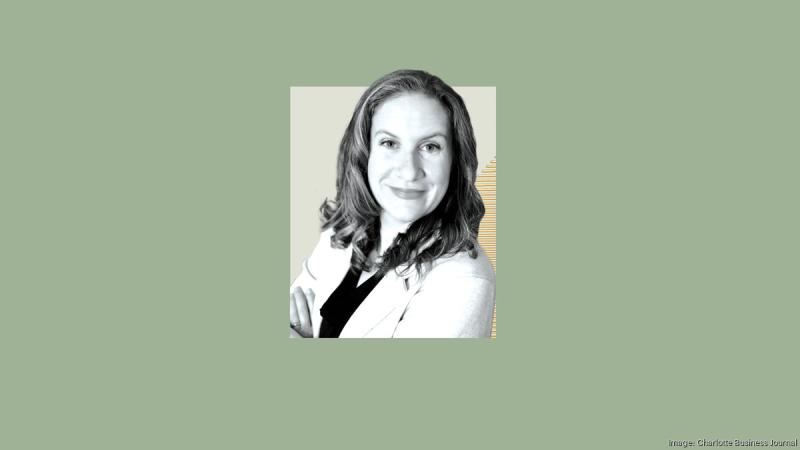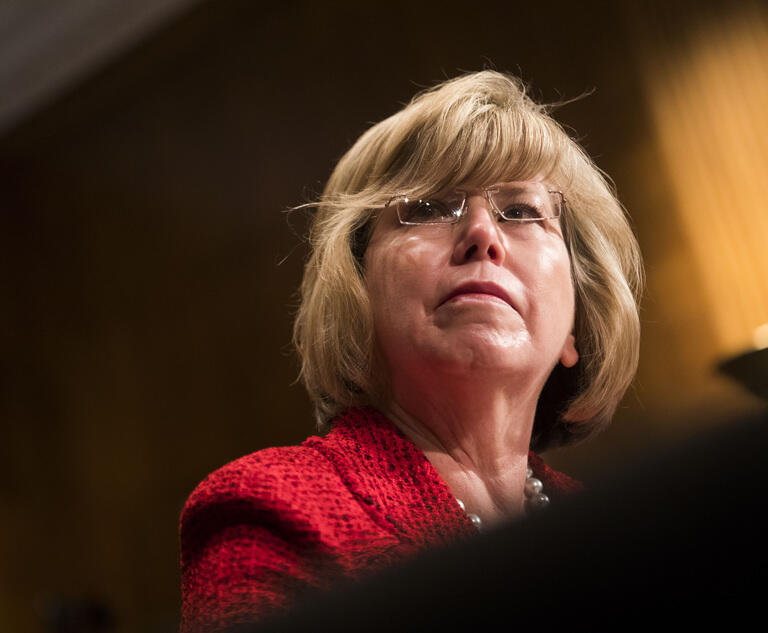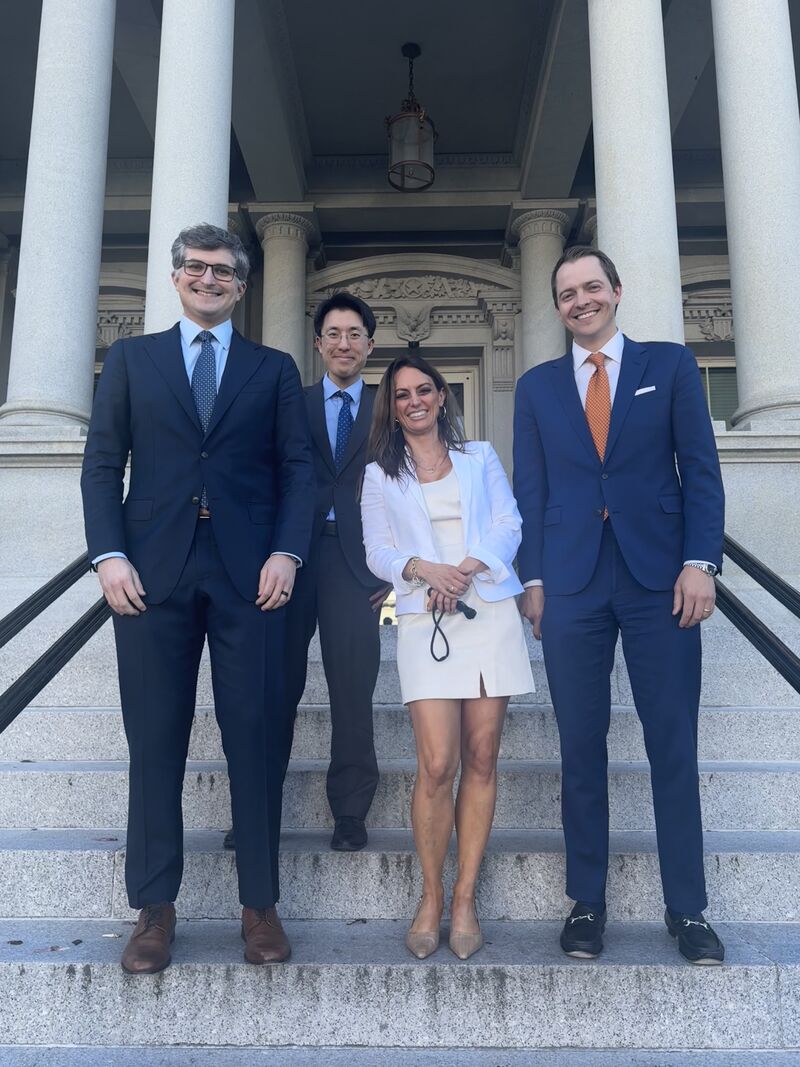The Name You Need to Know
Picture this: You're scrolling through legal news, and you keep seeing the same name pop up in major business litigation cases. Jennifer B. Dickey. Supreme Court cases, DOJ investigations, corporate battles worth millions. Who is this woman, and how did she become one of the most influential lawyers you've never heard of?
Here's the thing that'll blow your mind: Most people have no clue that some of the biggest legal wins for American businesses in recent years have her fingerprints all over them. While you're worried about your morning coffee, she's literally reshaping how business gets done in America.
Let me tell you a story that'll make you understand why Jennifer Dickey's rise isn't just impressive—it's absolutely shocking.

From Small-Town Dreams to Supreme Court Chambers
Jennifer B. Dickey didn't start with silver spoons or family connections. She's currently the Vice President and Deputy Chief Counsel at the U.S. Chamber Litigation Center—basically, she's the person who fights the biggest legal battles for American businesses. But here's where it gets interesting.
Her journey reads like a legal thriller. She clerked for Justice Clarence Thomas at the Supreme Court of the United States. Do you know how rare that is? We're talking about one of the most coveted positions in American law. Only about people get to clerk for the Supreme Court each year. Out of the thousands of brilliant law students graduating annually, she made it to the top 0.01%.
But wait, there's more. Before that, she clerked for Judge William H. Pryor Jr. of the United States Court of Appeals for the Eleventh Circuit. That's not just any judge—that's a federal appeals court judge, which is already incredibly prestigious.
The DOJ Power Play That Nobody Saw Coming
Here's where Jennifer's story gets absolutely wild. After her Supreme Court clerkship, she could have easily coasted into a comfortable private practice making bank. Instead, she chose public service. And not just any public service—she went straight to the Department of Justice.
Check out this career trajectory that'll make your head spin:
- Acting Assistant Attorney General in the Civil Division
- Principal Deputy Assistant Attorney General in the Civil Division
- Deputy Associate Attorney General
- Special Assistant to the President
- Associate Counsel to the President
Let me break this down for you. The Civil Division at DOJ handles massive cases—think government contracts, federal programs, constitutional challenges. As Acting Assistant Attorney General, she was essentially running one of the most important legal departments in the entire federal government.
But here's the kicker: She provided strategic oversight of the Civil Division, Civil Rights Division, and Foreign Claims Settlement Commission. That's not just one department—that's multiple critical government functions.
The White House Years: Where Real Power Lives
Now, pay attention because this is where it gets really interesting. Jennifer didn't just work at DOJ—she worked directly for the President as Special Assistant and Associate Counsel.
What does that actually mean? She was providing legal advice on executive actions, rulemakings, civil litigation, and judicial nominations. Think about that for a second. When the President needed legal advice on major decisions, Jennifer Dickey was in the room.
Judicial nominations? She was involved in picking federal judges. Executive actions? She helped craft the legal framework. This woman was literally helping shape American law from the inside.

The Academic Foundation That Started It All
You might be wondering: How does someone even get to this level? Let's look at her educational background, because it's honestly pretty jaw-dropping.
Jennifer earned her law degree magna cum laude from Duke University School of Law. Not just any law degree—magna cum laude, which means she was in the top tier of her class at one of America's most prestigious law schools.
But here's the detail that shows her true caliber: She was an Executive Editor of the Duke Law Journal. For those who don't know, law review is incredibly competitive. Being an Executive Editor means she was among the very best legal writers and thinkers in her class.
Her undergraduate degree? Magna cum laude from Dartmouth College. That's Ivy League excellence, folks.
The Private Sector Interlude
Before her government service, Jennifer cut her teeth at Kirkland & Ellis LLP—one of the most prestigious law firms in the world. She was a commercial and appellate litigator, representing businesses in federal and state courts.
Kirkland & Ellis isn't just any law firm. It's where corporate America goes when they need the absolute best legal representation. Working there as a litigator means she was handling million-dollar cases from day one.
The Chamber of Commerce: Where She Fights for Business
Now, here's where Jennifer's story comes full circle. After her incredible government service, she joined the U.S. Chamber Litigation Center, which is essentially the legal army for American business.
The Chamber Litigation Center is no joke. Founded in 1977, it fights for business at every level of the U.S. judicial system. They handle everything from class actions to environmental law, from securities regulation to criminal law.
Jennifer doesn't just work there—she's a Vice President and Deputy Chief Counsel. That means she's one of the top decision-makers in an organization that literally shapes how business operates in America.
Recent Victories That Prove Her Impact
Want to see Jennifer's influence in action? Let's look at some real cases. The Chamber Litigation Center helped secure victories in recent Supreme Court terms that have significant impact across the business community.

Jennifer has been involved in major cases including:
- Twitter v. Taamneh
- Sackett v. EPA
- Axon Enterprise, Inc. v. FTC
- SEC v. Cochran
These aren't just random cases—they're decisions that affect how American businesses operate, how they're regulated, and how they defend themselves in court.
Take the Chamber of Commerce v. Consumer Financial Protection Bureau case, where Jennifer was directly involved as attorney for the Chamber. The case challenged the CFPB's authority and resulted in a significant victory for business interests.
The Legal Powerhouse Behind the Scenes
Here's what makes Jennifer's rise truly shocking: She's achieved unprecedented influence while staying largely out of the public spotlight. While other lawyers chase media attention, she's been quietly building one of the most impressive legal careers in modern America.
Think about her career path:
| Position | Organization | Significance |
|---|---|---|
| Supreme Court Law Clerk | Justice Clarence Thomas | Top 0.01% of legal talent |
| Acting Assistant Attorney General | DOJ Civil Division | Running major government legal operations |
| Associate Counsel to President | White House | Direct legal advisor to POTUS |
| Vice President | U.S. Chamber Litigation Center | Leading legal fights for American business |
This isn't just career advancement—this is strategic positioning at the highest levels of American legal and political power.
The Network Effect
Here's something most people don't understand about Jennifer's rise: It's not just about her individual talent—it's about the incredible network she's built.
Supreme Court clerks form one of the most exclusive networks in American law. DOJ leadership connects you with government power brokers. White House positions link you directly to political influence. Chamber of Commerce work puts you in touch with every major business leader in America.
Jennifer didn't just climb the ladder—she built connections at every level that most lawyers can only dream of accessing.
Why Her Rise is Actually "Shocking"
You might be thinking: "Okay, she's successful, but why is this shocking?" Here's why:

Most lawyers pick a lane and stay in it. Corporate lawyers do corporate work. Government lawyers do government work. Jennifer Dickey mastered both, then used her government experience to become incredibly effective in the private sector.
She accumulated power without seeking fame. In an era where everyone wants to be a celebrity lawyer, Jennifer built real influence through competence and strategic positioning.
Her timing was perfect. She gained government experience during critical years, then transitioned to the private sector just as business-government relations became more complex and important.
The Litigation Center's Elite Team
Jennifer doesn't work alone. The U.S. Chamber Litigation Center is staffed by fourteen experienced in-house litigators. Here's what makes this team incredibly formidable:
- All have significant private sector litigation experience
- Eight have significant government litigation experience
- Fourteen clerked on U.S. courts of appeals
- Seven clerked on the U.S. Supreme Court
This isn't just a legal team—it's a collection of the absolute elite of American legal talent, and Jennifer is one of their leaders.
The Real Impact on Your Life
Here's something that might surprise you: Jennifer Dickey's work probably affects your daily life more than you realize.
When businesses face regulatory challenges, employment disputes, environmental regulations, or class action lawsuits, the legal precedents Jennifer helps establish ripple through the entire economy. The prices you pay, the services you use, the employment protections you have—they're all influenced by the legal framework she helps shape.
Frequently Asked Questions
Q: How old is Jennifer Dickey?
A: While her exact age isn't publicly disclosed, based on her career timeline and educational background, she's likely in her 40s or early 50s.
Q: What cases is Jennifer Dickey currently working on?

A: As Deputy Chief Counsel at the Chamber Litigation Center, she handles a variety of litigation matters, but specific ongoing cases aren't always publicly disclosed due to strategic considerations.
Q: How much does Jennifer Dickey earn?
A: Salary information isn't publicly available, but given her position at one of the most influential business organizations in America, along with her government and private sector experience, her compensation is likely substantial.
Q: Is Jennifer Dickey involved in politics?
A: While she served in government roles including as Associate Counsel to the President, her current role at the Chamber focuses on legal advocacy rather than political activities.
Q: What makes Jennifer Dickey different from other corporate lawyers?
A: Her unique combination of Supreme Court clerkship, high-level government service, and private sector experience gives her a perspective that very few lawyers possess.
Q: Can I hire Jennifer Dickey as my lawyer?
A: Jennifer works for the U.S. Chamber of Commerce, representing business interests generally rather than taking individual clients.
The Bigger Picture
Jennifer Dickey's rise represents something larger than individual success. She embodies a new model of legal career—one that seamlessly blends public service with private sector advocacy, government experience with business acumen.

In an era where business and government relations are increasingly complex, lawyers like Jennifer who understand both worlds become incredibly valuable. She's not just practicing law—she's helping shape the future of American business regulation and litigation.
Her story also highlights how real power in America often operates behind the scenes. While politicians and celebrities grab headlines, people like Jennifer Dickey are quietly making decisions that affect millions of Americans.
What's truly shocking about Jennifer's rise isn't just her individual achievements—it's how she's positioned herself at the intersection of law, business, and government power. She's become a force multiplier, where her expertise and connections create influence far beyond what any single lawyer could typically achieve.
In a world where everyone wants to be famous, Jennifer Dickey chose to be powerful. And that, perhaps, is the most shocking thing of all.
So here's the question that'll keep you thinking: In a democracy, should we be more concerned about the lawyers who appear on TV, or the ones like Jennifer Dickey who quietly shape the rules of the game from behind the scenes?



